Research
Structural Engineering
Principal Faculty
- Dr. Gord Wight
- Dr. Pat Heffernan
- Dr. Marc-Andre Degenais
- Dr. Simon Bourget
Active Structural Engineering Research
Structural Engineering research at RMC focuses on applications that serve the needs of the Canadian Armed Forces (CAF) and the Department of National Defence (DND). In addition to general infrastructure relevance, this includes applications specifically in support of the Canadian and Allied Military Engineering community to enhance mobility and/or the protection of our forces. This work is complemented by additional research which not only supports the CAF and DND but also assists the broader needs of Canadian society. Research involving large-scale and ancillary experiments is carried out both in the laboratory and in the field, which is supplemented by numerical simulations and modelling. Research is conducted in the following general areas:
- Military Bridge Assessment
- Military Load Classification (MLC) of bridges including the development of software. (Wight and Dagenais)
- Dynamic load behaviour and load distribution on bridges associated with military traffic including full-scale testing. (Wight and Dagenais)
- Behaviour and assessment military modular bridge structures including full-scale testing. (Wight and Dagenais)
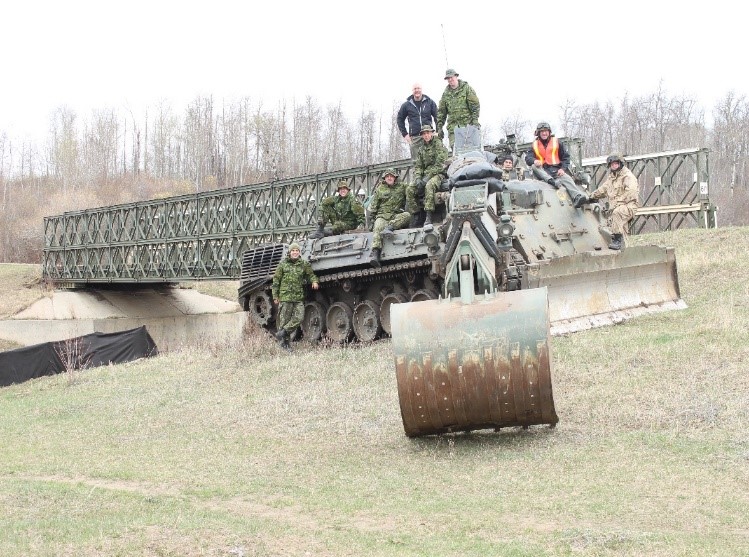
- Protective Engineering
- Behaviour of structural components subjected to the effects of blast and impact and post-blast/impact assessment (Heffernan, Wight and Dagenais)
- Behaviour of structural materials subjected to ballistic loading (Heffernan, Wight and Dagenais)
- Resilience of critical infrastructure (Heffernan)
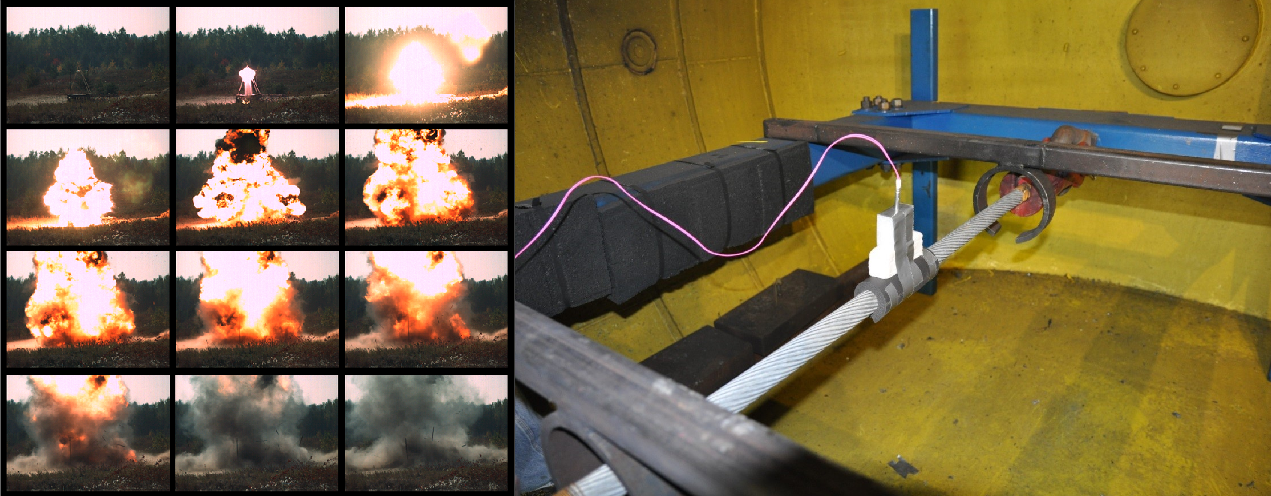
- Earthquake Engineering
- Behaviour of structural components subjected to earthquake loading (Bourget, Dagenais and Wight)
- Ultra-High Performance Concrete (UHPC) in seismic applications. (Dagenais and Bourget)
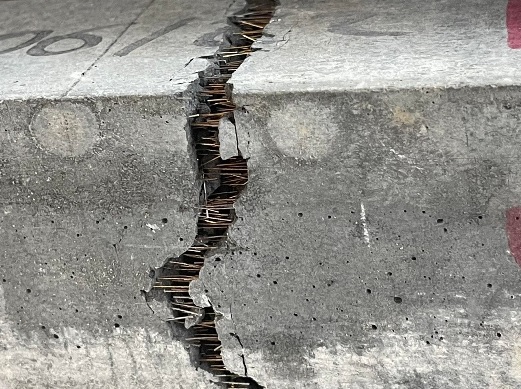
- Rapid Construction and Behaviour of Light-weight Rapidly-deployable Structures
- Behaviour of lightweight cold-formed steel arch structures including large-scale testing. (Wight and Dagenais)
- Behaviour of lightweight Fibre Reinforced Polymer (FRP) bridges including large-scale testing (Wight)
- Accelerated bridge construction (Bourget)
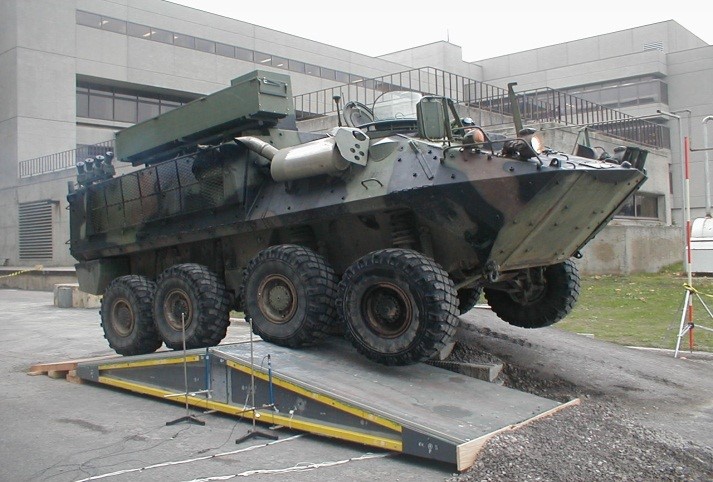
- Methods of Structural Strengthening.
- Strengthening of structural components with UHPC (Dagenais and Bourget)
- External structural strengthening applications primarily focused on FRP Sheet strengthening (Wight, Heffernan and Bourget)
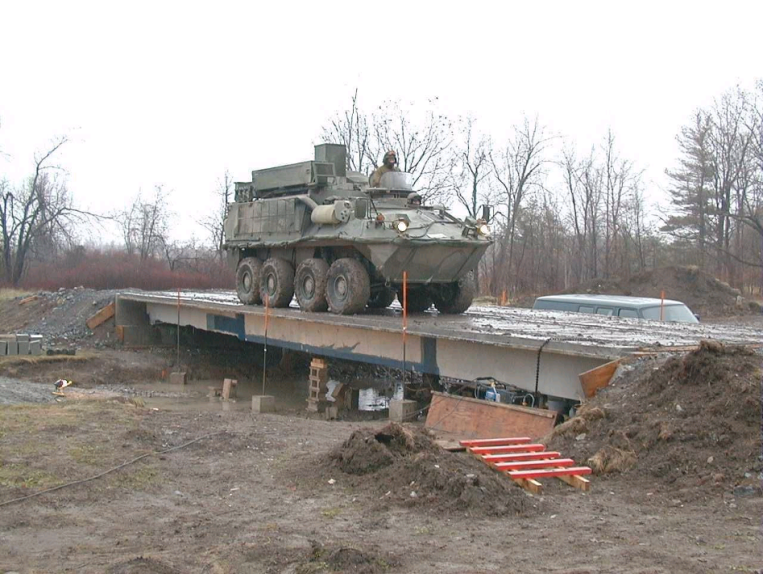
- Structural Health Monitoring
- Monitoring of Legacy Wooden Warren Truss Hangars (Dagenais and Vlachopoulos)
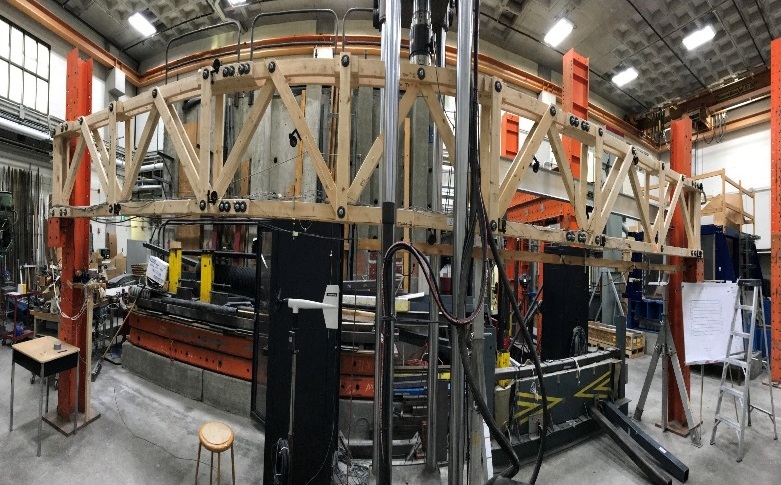
Geotechnical Engineering
Principal Faculty
- Dr. Greg Siemens
- Dr. Nicholas Vlachopoulos
- Dr. Djaouida Chenaf
- Dr. Ryley Beddoe
- Dr. Alireza Yaseri
Active Geotechnical Research
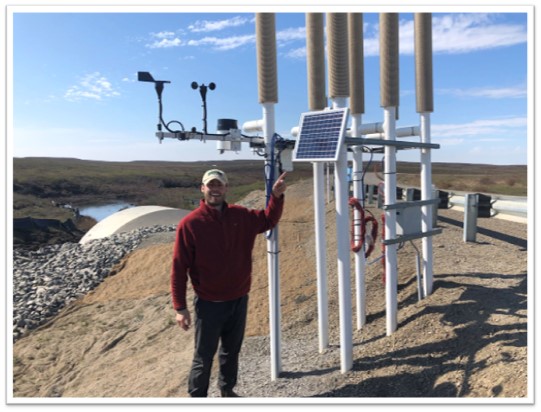
Dr. Greg Siemens
- Long-term performance of critical transportation infrastructure along Inuvik-Tuktoyaktuk Highway through field monitoring, physical modeling, and thermal modeling
- Physical modeling of legacy drilling sumps in continuous permafrost subject to climate warming
- Soil/structure/climate interactions of roadways and foundations constructed in swelling soils
- Development of a 3D sand printer for construction of physical models and soil specimens
- Coastal-beach interactions and effects on subsurface moisture migration and shallow bearing capacity using transparent soil
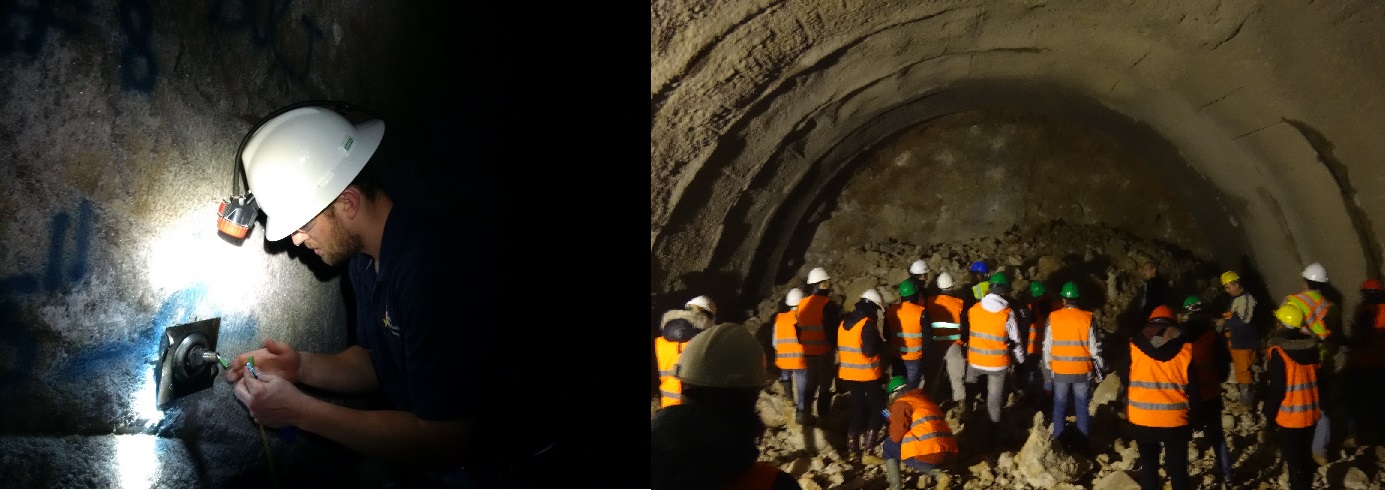
Dr. Nicholas Vlachopoulos
- Geomechanics, ground response and optimization of support design during excavation for tunnelling and mining
- Monitoring and Physical Testing of Tunnel / Ground Support at multiple scales (μm to full-scale, in-situ)
- Development of Improved Numerical Modelling Techniques and Software for Geological / Geotechnical Engineering Problems
- Optimizing tunnel, mining and underground bunker design(s) and construction techniques and relevant support using fiber optics within sustainability frameworks
- Improvement of ground characterization techniques using machine learning and Artificial Intelligence
- Improving design, maintenance and operation for military geotechnical works within risk management frameworks

Djaouida Chenaf
- Geotechnical engineering including engineering geology and Groundwater in both temperate and cold regions (permafrost)
- Physical, analytical and Finite Elements Numerical Static and dynamic Modelling.
- Non-destructive testing application and development for soil-water interaction's studies
- Soil-water-structure interactions

Dr. Ryley Beddoe
- Long term integrity and performance of ice roads through field monitoring and physical modelling techniques
- Impact of geohazards and climate warming on transportation infrastructure along Inuvik-Tuktoyaktuk Highway
- Understanding the effect of permafrost thaw on the stability and resilience of the track and bridges along the Hudson Bay Railway
- Development of light transmission techniques to quantify contaminant migration in frozen and thawing soils
Dr. Alireza Yaseri
- Mesh-Free Methods in Geotechnical Engineering:
- Application of Smoothed Particle Hydrodynamics (SPH) and Material Point Method (MPM) for solving large deformation geotechnical problems.
- Seismic Behavior of Tailings Dams:
- Utilization of shaking tables to study the seismic behavior of tailings dams, likely focusing on their response to ground motion and earthquake forces.
- Long-Term Performance of Transportation Infrastructure:
- Investigation into the long-term performance of critical transportation infrastructure along the Inuvik-Tuktoyaktuk Highway.
Environmental Engineering
Principal Faculty
- Dr. Michael Hulley PhD, PEng.
- Dr Philippe Lamarche PhD, PEng
- Dr. Djaouida Chenaf PhD, PEng
- Dr. Nicholas Vlachopoulos PhD, PEng
Active Environmental Research
- Assessment of aquifer parameters affecting hydocarbon contaminant migration (Chenaf)
- Investigation of mobility of fuels and lubricants in permafrost (Chenaf)
- Green Building / Sustainable Development Technologies
- Optimization of Military Infrastructure – Domestic and Deployed
- Reduction of Greenhouse Gases due to Military Operations
- Monitoring of Energy Usage and Alternative Technologies
- Environmental Impact Assessments of Engineering Projects
- Development of DND guidelines for DNAPL and LNAPL site characterization (Chenaf)
- Development of stormwater management software – MODRET (Hulley) http://www.modret.com/
- Development of river and lake water quality modelling software based on EPA’s Environmental Fluid Dynamics Code (Hulley)
- Investigation of frazil ice formation in small Ontario Rivers (Hulley)

- RMC Green Team
- Optimization of Water and Sewage Treatment Plants
- Water/Wastewater Quality Management and Optimization Programs
- Investigation into the performance of sewage lagoons in remote areas
- Investigation into the Reduction of GHGs - Operational Sustainability for the Royal Canadian Air Force (RCAF)
- AFFF (PFAS) sampling, detection, monitoring and risk assessment
- Small Arms Ranges (SAR) Risk Assessments
- Investigations into improvements of Waste Management in Northern Canada and the Arctic
- Assessment and optimization of Monitoring Wells Programs
- Investigations into Soil Land Farms - Risk Assessments
- Reduction of GHGs - Energy Studies (Green Buildings, Armouries)
- Improvements to Environmental Baseline Studies and Environmental Management Systems
- Range Training Areas Management Planning – Sustainability Frameworks
- Green Building / Sustainable Development Technologies
- Optimization of Military Infrastructure – Domestic and Deployed
- Reduction of Greenhouse Gases due to Military Operations
- Monitoring of Energy Usage and Alternative Technologies
- Environmental Impact Assessments of Engineering Projects
- Fuel Tank Management Assessment, Operations and Protocols
Other topics
For a listing of other Engineering research topics please refer to